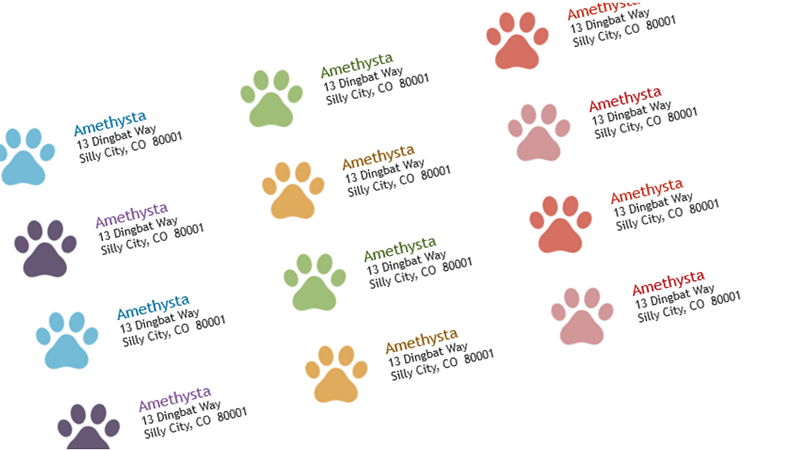Labels — the Ultimate Weapon Against Queerness
I remember where I was when I learned the word “ratify.”


It was Summer. The house where I grew up needed the sewer rooted out, and my father did it himself. I remember standing by the pink brick wall in our front yard, considering the elm trees that started the whole mess. The bright blue Southern California sky glittered between their branches. I might have been ten years old when I asked my father that singular question:
What’s that thing they do in the government when they approve a law?
You mean ‘ratify?’
Ooh! I had gained a new word! I loved the way “ratify” begins crouched in the throat; how it crawls across the tongue with the lithe, sensuous movement of the animal named by its first three letters; and — its birth imminent — explodes with plosive phonemes into existence. Ratify.
I probably sighed with satisfaction.
I love word play — puns, alliteration, onomatopoeia — anything that loads further meaning into a word or phrase. Language is beautiful.
Yet language is also a weapon. Four-year olds wound their parents with declarations of hate. High school boys, in pursuit of penetration, wound their girlfriends with declarations of love. And, of course, we grant our government the right to wound us all with laws composed of words they may not even read.
But the worst weapons are words we use to wound ourselves and bind us in our own pain.
Born This Way — again
In the past week, I stumbled upon several articles that address the “Born This Way” argument, some going back months. The best I read was from Kaylin Hamilton, Ph.D, who dismisses the argument as dangerous. I wrote a similar article, concluding that “Born This Way” implies the cisgender and heterosexual experiences are “normal,” and the transgender or homosexual experiences are deviations that must be explained using the fallacy of the logical premise. The fallacy is that gender and sexuality are based in biology.
As tempting as it is for those of us in the LGBTQ community to latch on to any validation of our experiences in the face of legislated hatred, the truth is more complicated. I don’t intend to speak more about that. Another speculative article speculating on the implications of speculative science on the LGBTQ community would be…well, pure speculation. If the argument doesn’t fit the cisgender / heterosexual experience, it certainly won’t fit the transgender / homosexual experience.
What I read, however, is that “Born This Way” — while it may appear to justify the gay, lesbian, and transgender experiences — fails to provide succor to the bisexual or genderfluid experiences. Having fallen into both categories earlier in life (despite leaning hard into the transgender category now), I disagree. I took solace in “Born This Way.” I still do, although I believe my stance of identity stemming from a soul that transcends body, mind, and society is clear.
To be sure, “Born This Way” reinforces a binary, and experiences outside the binary — particularly those that may appear voluntary — are clumsily tacked on to the argument. But the real problem is not people being left behind. It is that “Born This Way” requires categories if it is to defend them.
Slap a label on everything
If somebody asks me to describe myself, I use words — words that include “transgender,” “bisexual,” “middle-class,” “mental health,” etc. But none of these terms defines me. Even the sum of these terms barely defines me. I am, however, forced to use them. Humans — at least in the Western world — delight in labels.
We need a label for everything — sex, sexuality, gender, politics, race, ethnicity — and we feel we understand a person only when we possess the list of labels they carry. But as I discussed previously, every label we apply to ourselves coerces us into a false choice. We must choose between attempting to connect with others with a label and holding true to our deepest desires and motivations — which require a dissertation to explain.
And every false choice we make perpetuates our pain, prevents us from truly connecting with others, because we view identity as a set of labels.
Identity is known deep inside; labels are a proxy for exploration. While labels may provide a starting point for comprehension, they are too often used as a cant, a community jargon adopted to exclude. We use labels for ourselves just to make our mother cry. I know it — hell, I did it. I’m not proud of it, but when we have not yet developed an identity on our own, being shocking is a great substitute while we work on it. When the world claims we are weird, many of us stand up and scream “damn right!”
Before you skewer me, I admit: a label may assist in understanding. It may be a shortcut to an otherwise long conversation. But the label is almost certainly usable as a weapon against you as well. We dismiss people because of the label on their voter registration card. We dismiss their opinions because of demographics — some voluntary, some involuntary. What we lack before dismissing ideas is understanding.
Words have meaning…until they don’t
I love language. I’ve argued for an hour over the Oxford Comma. I agonized over using the word “sensuous” in the introduction to this article. But I worry about language changing — about making arguments by redefining words instead of explaining concepts. We understand concepts; we label the concepts with words. But when we learn a new word, our understanding of the concept does not change — only our ability to express ourselves succinctly changes.
Over my life, I used many words to describe myself. I called myself “transvestite,” “cross-dresser,” and, when lacking others, “confused.” At some point, I learned the word “transgender,” but that was not when I became transgender. In fact, the best word that ever described me was simple: girl. I didn’t need labels then to be who I was, and I don’t need labels now to continue to be who I am.
As I delve deeper into the relationships among sex, gender, and sexuality, I find a proliferation of labels. You can find long discussions on the internet debating whether “demi” overrides “sapphic” and in what situations “aro” takes over. I don’t diminish these explorations of sexuality, gender, and identity: the philosophy is fascinating (the best resource I know is here), and exploration is typically positive.
Yet at times, these discussions appear like a scene out of “L.A. Story,” in which twelve people sit around a table at an outdoor café. Each orders a different variation of “double half-decaf soy latte, light foam, hot, with a twist of lemon.” Every drink set down on the table looks identical.
Words carry value when they describe reality (or in the case of fiction, an alternative reality). Every label has the potential to describe reality; every use of labels has the potential to obscure reality.
There is no substitute for self-knowledge
Our pain grows out of our inability to define and accept ourselves. Rollo May demonstrated depression and alienation decreased in people who investigated their identities. If we expect to co-exist peacefully, it starts with knowing ourselves and expressing our true Self.
I understand — there are times and places where it could be dangerous to explore and express yourself. I do not recommend putting yourself or your family in danger. However, many of the situations in which we choose to shackle ourselves with the identity handed to us by family, friends, and religious (or other) groups, it is because we fear to define ourselves.
You may ask yourself what collection of acronyms, colors, flags, and labels can be used to describe you. But questions like that have no value. They use somebody else’s definitions, and even when we agree on definitions, the words still do not describe you. You are not a collection of labels.
Exploring and defining ourselves is our only hope for self-realization. Labels do not matter. What does matter is you.
Who are you?




